The best content management software is Wrike. It allows streamlined and seamless content strategy and campaign execution. It provides numerous tools that help facilitate productive brainstorming, content planning, editorial calendar planning, and the creation of buyer personas.
Every marketer knows that as long as you can attract and maintain many visitors to a website, your business will be good. However, to do so, one needs to continuously update it with great content to keep people engaged. This highly-challenging task will be impossible without the able assistance of content management software or CMS.
But a CMS does more than ensuring your content is attractive and up-to-date. This reliable and powerful type of software also helps your site get positive search results, remain secure, device-optimized, etc. This is why we’ve gathered these 15 best content management systems, so you’ll know if you’re already using a formidable CMS or it’s time to shift to a better one.

What are the 15 best content management software systems?
Despite the challenges inflicted by the COVID-19 pandemic on various industries, the content management software market manages to thrive through the crisis. In 2020, the CMS software market is estimated at $11 billion in the United States alone. Globally, CMS software market is worth approximately $40.8 billion and projected to reach $112 billion by 2027. The on-premise segment of CMS is projected to reach $59 billion by 2027—a 14.8% compound annual growth within a seven-year period. The forecast for the cloud-based segment’s growth, on the other hand, is higher at 16.3% amid the pandemic.
Source: ReportLinker; GlobeNewswire 2020
1. Wrike

Wrike Content Marketing Software helps marketers improve their content strategy and campaign execution. It provides several content preparation, production, and publication tools, allowing the creation of timely, high-quality articles, social media posts, videos, and other content types. It facilitates fruitful brainstorming, editorial calendar plotting, content planning, as well as buyer persona creation.
This platform allows many integrations to improve customer service. It works well with business solutions and applications like Gmail, IBM, DropBox, Google Drive, Apple Mail, and Microsoft Outlook, to mention a few.
This tool’s free plan includes the platform’s core features. This helps small businesses and freelance marketing teams that cannot afford one yet. As their business grows, they can easily switch to a vendor’s paid plan starting at $9.80 per user per month.
Detailed Wrike Review
Wrike’s Key Features
- Organized File Management
- Seamless Communication
- Collaborative Editing
- Easy Time Tracking
- Reporting Using Real-time Data
2. HubSpot
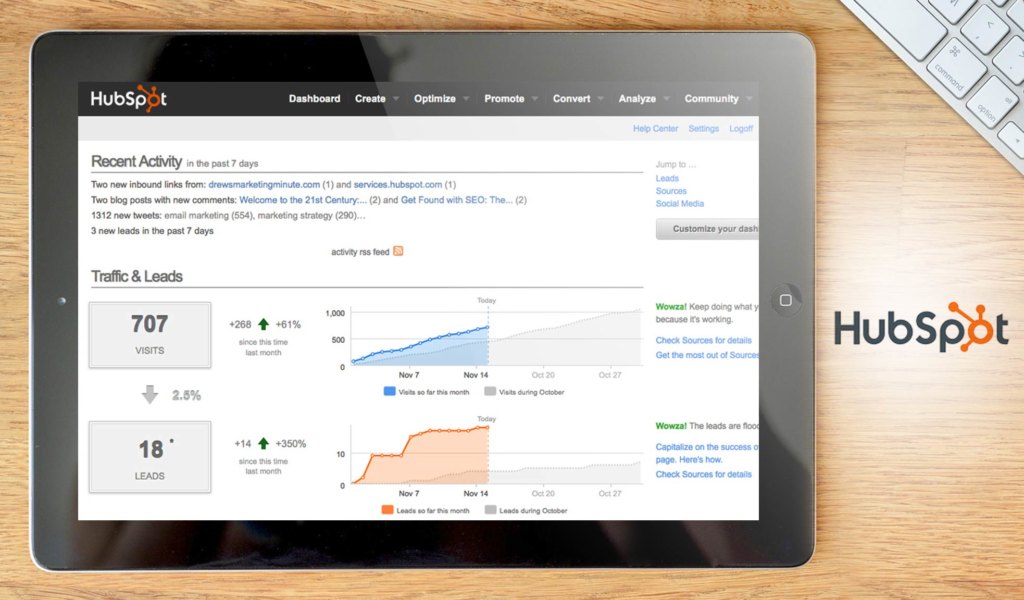
HubSpot is a marketing suite that offers marketers the features they need to create engaging content and deliver them quickly to their target audience. The software also helps companies boost their list of contacts, combine their email metrics directly into the solution without merging and exporting data, and segment their emails for greater personalization and effective delivery.
This robust solution gives access to full-funnel marketing software, which allows users to create and deliver effective emails that are connected to the rest of their marketing tools and applications. Users can also create static and smart email lists that are updated automatically based on list membership or changes in the contact field data.
What’s more, you can use the system’s features to create and deliver effective, tailored emails without IT expertise. Or, you can choose from the templates offered by the software. In addition, you can use the integrated analytics to evaluate the success of your email campaigns.
Detailed HubSpot Review
HubSpot’s Key Features
- Integrated social publishing.
- Search engine optimization.
- A/B testing landing pages.
- Blog analytics
- Event-based automation triggers
3. monday.com
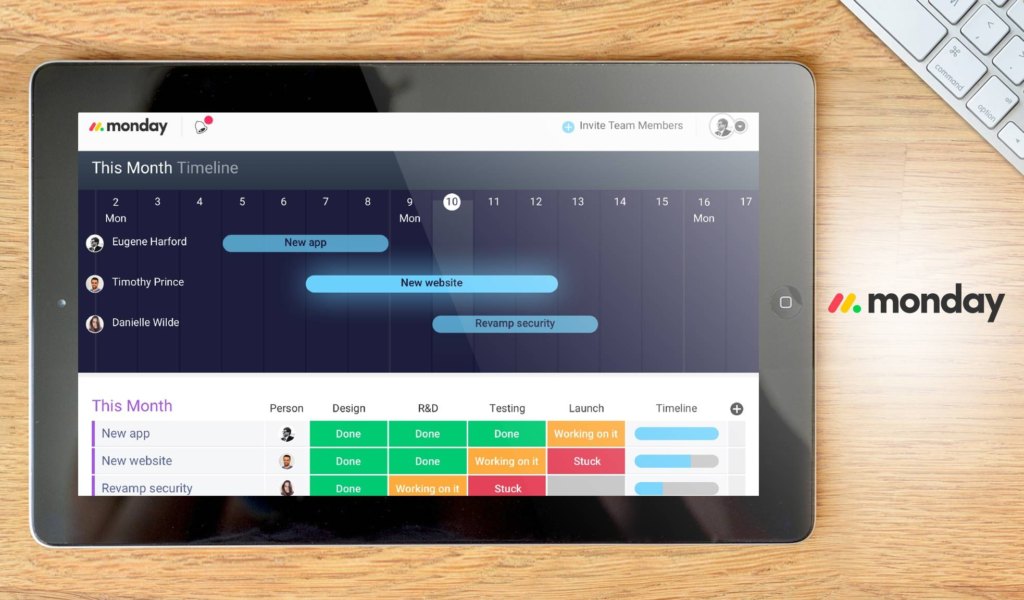 monday.com is an award-winning content, collaboration, and marketing suite. It helps businesses easily organize their content and communication using one accessible hub. What’s more, content production is a breeze with this solution because it streamlines team contribution.
monday.com is an award-winning content, collaboration, and marketing suite. It helps businesses easily organize their content and communication using one accessible hub. What’s more, content production is a breeze with this solution because it streamlines team contribution.
And when used by marketing teams, content and progress data are collected and presented in a clear, readily understandable way. Because of its robust collaboration features, marketers can better perform and complete their tasks promptly.
Overall, it functions to help streamline marketing efforts by bringing your content, tools, and team members to a single location.
Detailed monday.com Review
monday.com’s Key Features
- Many-to-many communication tool
- Reporting and analytics
- Knowledgebase
- Personal and public boards
- Team collaboration
4. WordPress
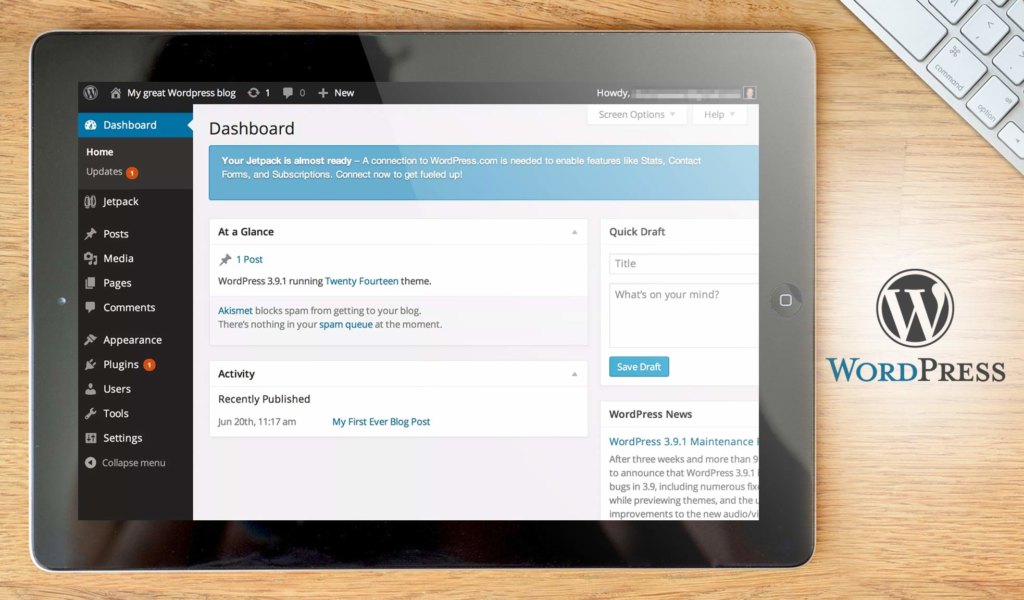
WordPress is a perennial leader in this software category, mainly for its excellent functionalities, powerful features, and impressive customer service and support. The vendor offers suitable pricing packages for the needs of both small and large companies.
This website builder began as basic blogging software but has developed into a fully functional CMS by using thousands of themes, widgets, and plugins. To become a WordPress user, all you need is an email address to which the vendor will send a WordPress.com address of your own.
When using this CMS, you can download and install the software script and create your blog/website easily. Then, you need to host your website on a web host for which you can make use of the WordPress.com service, and this allows you to host your new blog for free.
Detailed WordPress Review
WordPress’ Core Features
- Easy website publishing
- Numerous publishing tools
- Search engine optimized sites
- Full standards compliance
5. Drupal

Drupal is described as a community publishing system. Mainly, Drupal is a CMS that has been optimized to be used on the internet as a social medium. In short, it is a system that takes important parts of CMS, blogging and ecommerce platforms, wikis, and forums to create an integrated modular solution that can be used for ecommerce, publication, and communication.
This is an open-source CMS that is used to power many websites and applications for free. Many diverse communities of users actively apply, build, and support the development of the software. Drupal offers features such as advanced menu management and user management.
Moreover, users can utilize these features to create simple, yet sophisticated websites, social networking pages, etc. It also functions well as blog software.
Detailed Drupal Review
Drupal’s Core Features
- Page content management
- Open-source solution
- Numerous displays, designs, and modules
- Robust taxonomy capability
6. Acquia
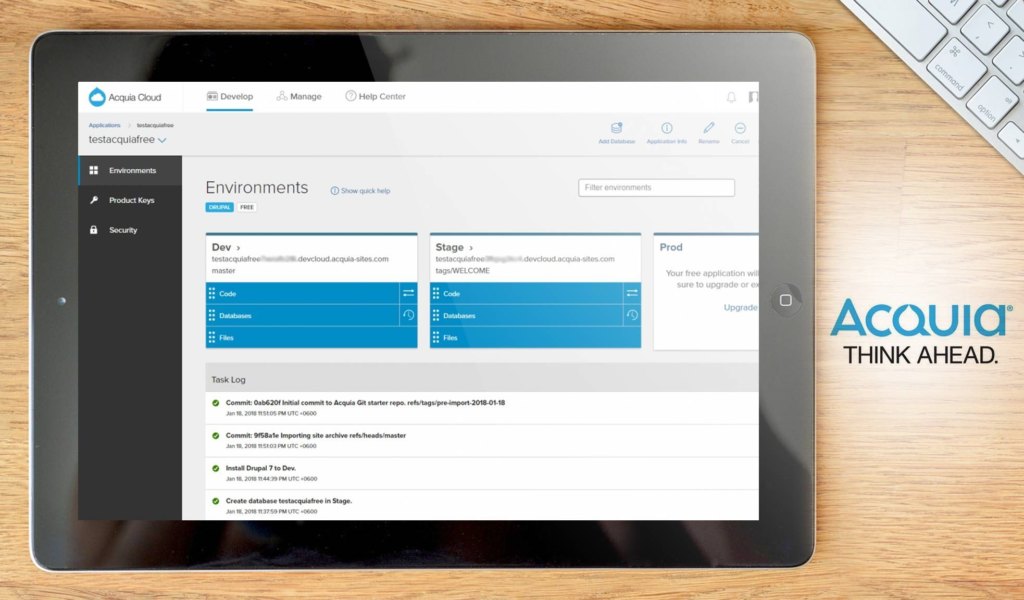
Acquia is one of the best content management software solutions in our listing. It is a CMS platform designed for commerce, community, and content. Also, a popular content marketing software, this solution offers a cloud-based platform where you can build and optimize the digital experience of your clients.
Companies use Acquia to create robust digital foundations to deliver high-quality customer experiences. The vendor offers Platform as a Service (PaaS) instead of SaaS. In short, Acquia is a commercial open-source software that offers a beautiful experience in terms of content.
Meanwhile, merchandisers and marketers can use the software to control the delivery of a personalized experience. Likewise, technical leaders and developers can use the system to build complex applications quickly and provide reliability and security. Additionally, content managers and brands can use the solution to deliver a unified brand, commerce, and social experience across various devices and geographies.
Detailed Acquia Review
Acquia’s Core Features
- Easy media integration
- Site visitor analytics
- Marketing integration
- Content as a service
7. Squarespace
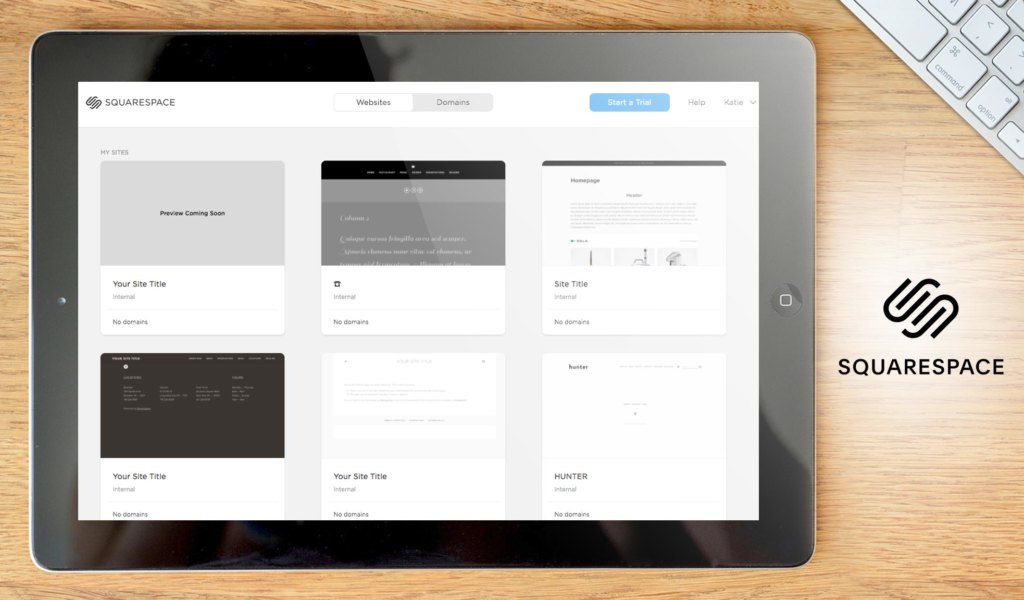
Squarespace is an ideal platform for individuals and small businesses that wish to sell online. The system can be used for building online shops and to start personal websites and blogs. It is a cloud-based solution that offers extensive and robust customization features through its dynamic style editor.
What’s more, Squarespace also offers stylish pre-made templates to make it easy to build websites. The image-rich and beautiful designer templates are minimalistic yet sophisticated. They attract one’s attention quickly, which can boost your online business.
Likewise, the templates are intuitive and responsive and enable you to experience optimized viewing, especially on mobile devices. Finally, the software stands out for its extensive customization and styling options. Plus, users get discounted Getty images and free Typekit fonts.
Detailed Squarespace Review
Squarespace’s Core Features
- Easy DIY website builder
- Built-in mobile websites
- Custom WYSIWYG editor
- Automatic image scaling
8. Joomla!
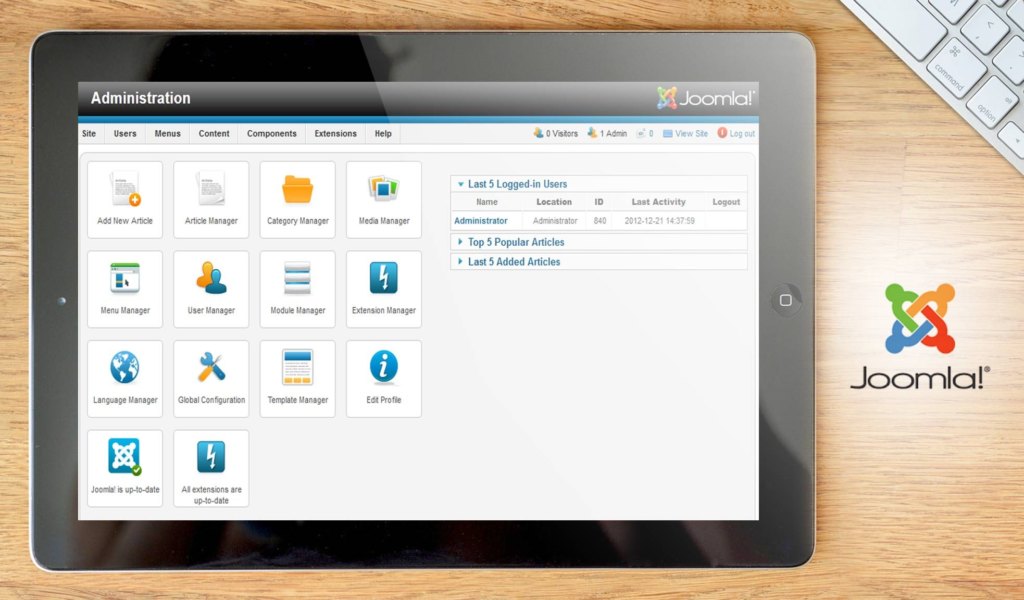
Joomla! is a popular and widely used open-source CMS. You can use the software to keep track of all the types of content published on your website and control their quality. It can be compared to a library that stores and keeps track of books. The interface makes the software simple to use even for novices.
Essentially, you can use Joomla! to create and manage content such as text, video, music, images, etc. You don’t need technical skills or content management knowledge to use the software. Because with a single click, you can organize and manage all of your content.
Moreover, this platform is used to empower websites of all shapes and sizes. In terms of complexity, experts agree that Joomla! lies between simple WordPress and advanced Drupal.
Detailed Joomla! Review
Joomla!’s Core Features
- CMS management
- Article arrangement
- Media manager
- Template override
9. Sitecore
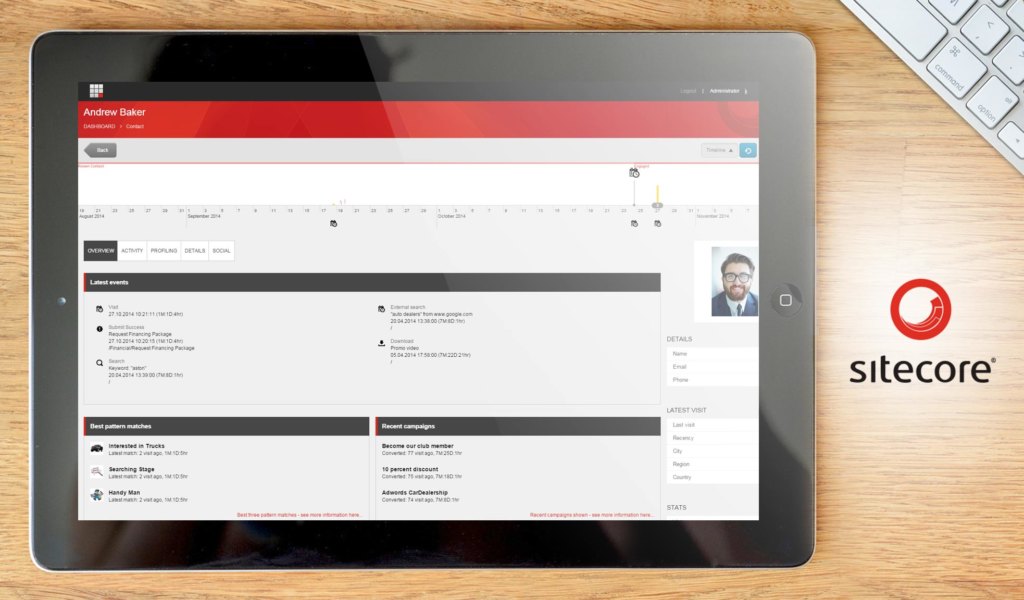
Sitecore is a CMS that integrates customer experience management. The software enables you to manage the overall customer experience throughout your apps and websites. It offers features that help you to analyze overall consumer engagement with your content. The best part is the system can manage any content and allows you to control the experience you deliver to your customers.
Meanwhile, the vendor believes that website management software is important to consistent digital experiences. And this is why the platform was designed to offer a unique web experience for every individual.
Sitecore is also linked with online content strategies and experiences on all types of devices and is backed up by a robust web CMS. Moreover, the software helps you create compelling web experiences and displays the content in the best formatting that is appropriate for user’s devices.
Detailed Sitecore Review
Sitecore’s Core Features
- Web experience management
- A/B testing
- Cross-channel data analytics
- Predictive marketing
10. Box
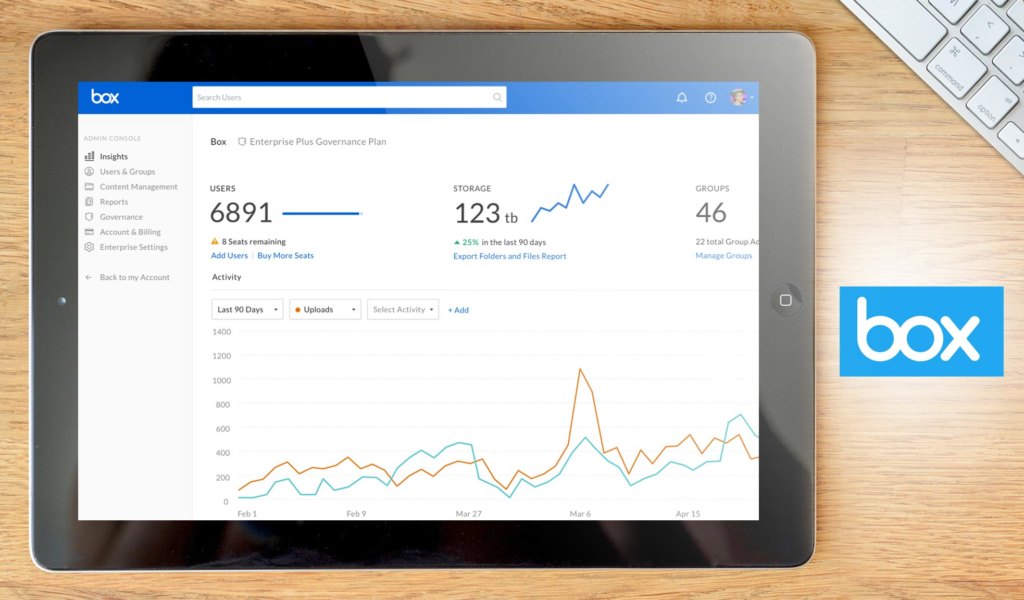
Box is a content management and file-sharing system that allows secure collaboration from any device. You can use the system to easily manage and share files across your company. The software is used by more than 50,000 companies worldwide, including top brands like Pandora, GE, Boston Scientific, Gap, and Nationwide.
What’s more, you can use this file-sharing tool to easily create, edit, and review files with other users in real-time or on the go. The vendor offers security for stored files with features like granular permissions, mobile security, customer-managed encryption, and activity logs.
In addition, users can comply with data retention policies, regulatory policies, and e-discovery requests. Finally, Box also helps your company meet global as well as local business and regulatory requirements.
Detailed Box Review
Box’s Core Features
- Box content API
- Granular permissions
- Full-text search
- Rich file preview
11. Brightcove
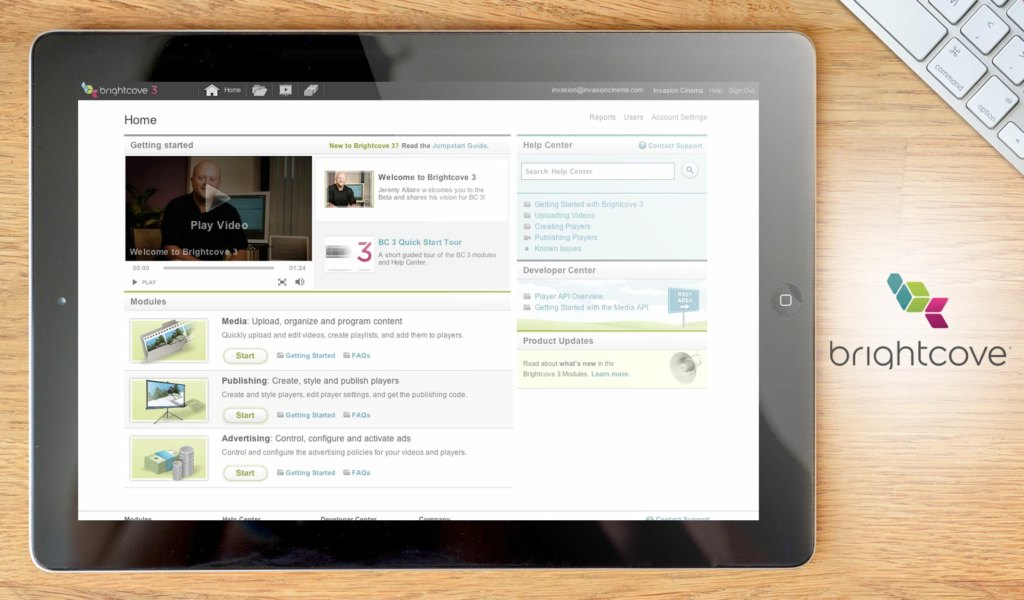
Brightcove offers a range of online video solutions and systems that companies can use to deliver attractive video content and monetize those videos across multiple platforms and devices. The online video solutions are divided into two groups, namely, Media and Brands.
What’s more, this platform is targeted at content owners, distributors, publishers, and broadcasters who can use the software to engage and monetize their audiences quickly and effectively. Brightcove for brands caters to the marketing aspect of online videos and helps deliver attractive content at every stage of the customer journey.
Detailed Brightcove Review
Brightcove’s Core Features
- Social Sharing
- HTML5 Video
- Ingest and Transcoding
- Video Library Management
12. Pantheon.io
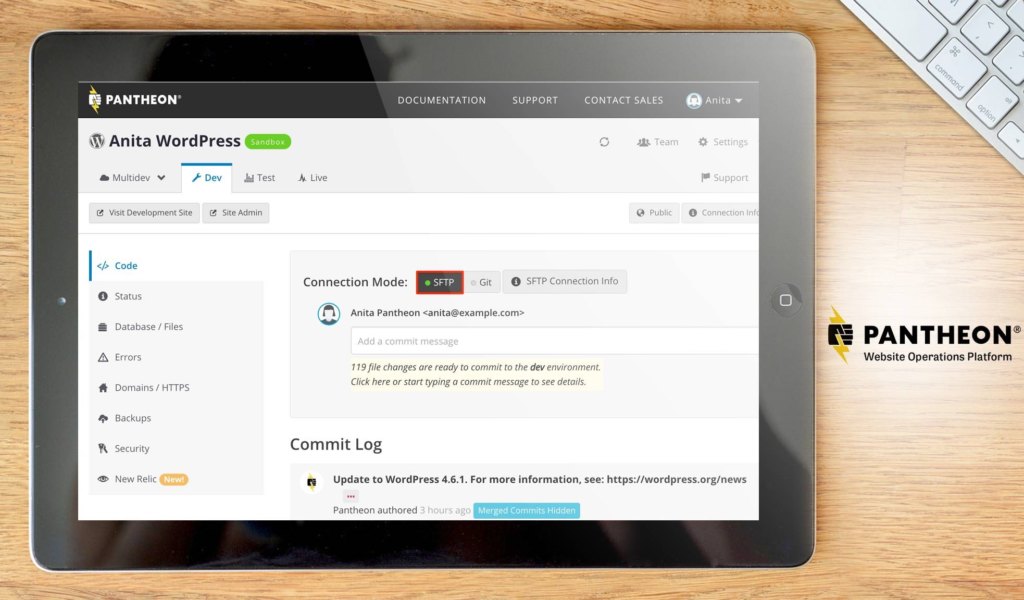
Pantheon.io is a website management platform for Drupal and WordPress. The software is a relatively new discovery for WordPress management, but it has been with Drupal for a long time, focusing on both enterprises and developers. These tools have been transferred to the WordPress space, creating a leading managed WordPress hosting company.
And since this platform can manage WordPress and Drupal, users can move around with the hosting parts and particulars. Further, it allows administration, updating, and deployment of changes on WordPress and Drupal websites.
Detailed Pantheon.io Review
Pantheon.io’s Core Features
- Cloud development environments
- Smooth scaling
- Container-based platform
- Automated site monitoring
13. Contentful
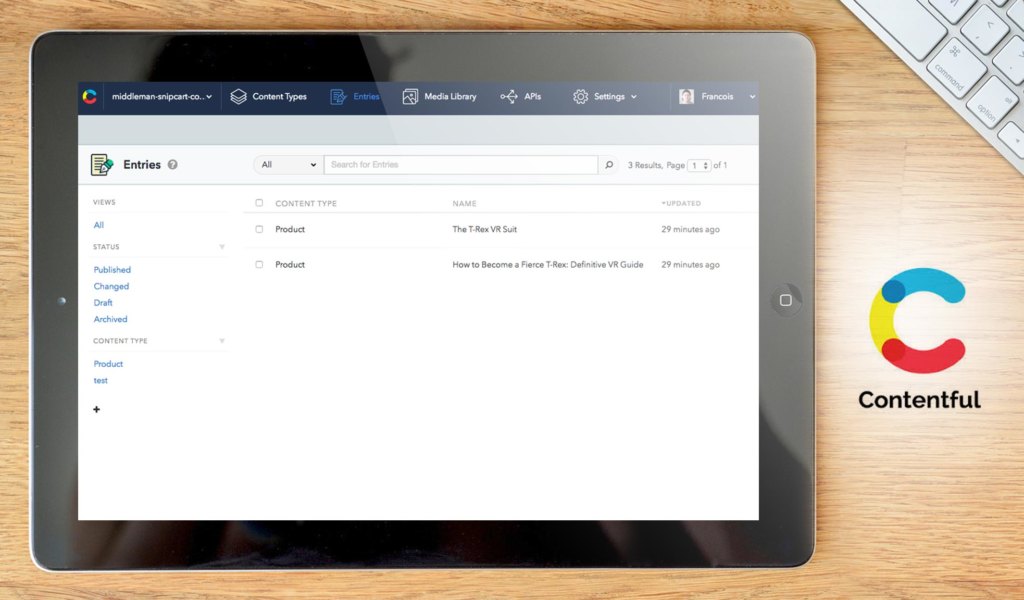
Contentful is an online content management system and development platform that offers embedded API. This sophisticated system makes all created content accessible via APIs, which allows users to display their content anywhere and for any purpose.
In addition, users can utilize Contentful to create a custom content model instead of having to deal with predefined templates. Likewise, the platform delivers all needed content while offering enough room for users to design around it, separating the content from presentation in a scalable and flexible manner for better performance.
Overall, Contentful is an affordable and well-integrated CMS that can blend seamlessly into your company’s software architecture. The vendor offers a free plan for starters, and you can easily transition to higher, paid packages to support your company’s development.
Detailed Contentful Review
Contentful’s Core Features
- Can create all type of content templates
- Multi-platform markup language
- Flexible and modular fields
- Extensive query filters
14. Kentico
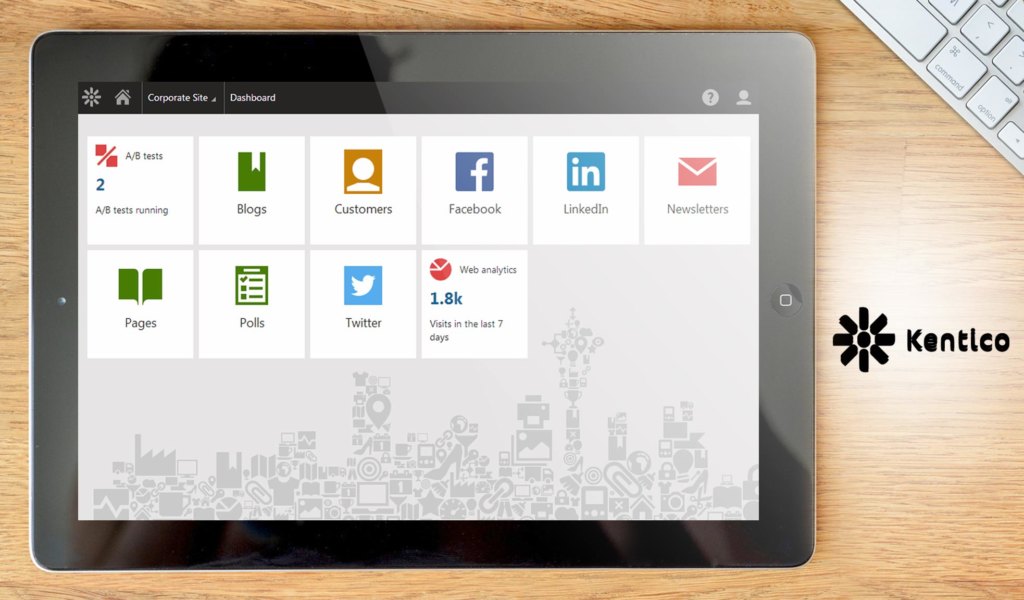
Kentico is the only CMS platform that is fully integrated with ecommerce, ASP.NET, and other key online marketing solutions. This enables users to create sophisticated websites and fully optimize the experiences of their digital customers across multiple channels.
This CMS tool also offers advanced digital marketing features, including an SEO tool, to businesses of all sizes. With these capabilities, users can utilize the software to create attractive websites, online stores, etc. that help to improve communication among team members and with their clients as well.
Meanwhile, the vendor offers four pricing packages, with annual subscriptions. Pricing depends on the features and number of users your business includes. What’s more, all plans are fully integrated with a range of external applications, systems, and platforms.
Detailed Kentico Review
Kentico’s Core Features
- Document management
- Multilingual content
- SEO
- Email and social marketing
15. Unicheck

A plagiarism tool suitable for personal and business use, Unicheck uses advanced technologies to accurately detect traces of plagiarism within seconds. Specifying a text or running the whole document is all you need to check for plagiarism, and the software will quickly scour the internet, user database, and open source libraries to check for similarities in content.
This solution also supports an extensive list of document formats, and can even check cloud-based platforms such as Google Drive and Dropbox. Moreover, users can also conduct plagiarism checks on the go.
Essentially, Unicheck gives you the utmost accessibility to check for content similarities and ensure every single content you run is as authentic as possible.
Detailed Unicheck Review
Unicheck’s Core Features
- Multiple document format support
- Powerful algorithms
- Real-time search across various libraries
- Built-in analytics
How to Choose the Right CMS for Your Website
Now that we’ve reviewed the top 15 content management tools, you’re now more aware of what’s the best, widely-used CMS solutions in the market. However, user base is actually but one aspect of an entire list of things to consider when searching for the most suitable CMS for your business website.
Here are some of the best practices when choosing the correct CMS for your business use:
- Ensure that your CMS is scalable
- Don’t build an in-house or custom-made CMS.
- Select a CMS that can support omnichannel marketing and access
- Choose one with a smart user interface
- Visualize and organize your site properly
- Never use a system that will make you rely heavily on web developers
- More than the software, look for a CMS vendor with superb support
- Ensure it has extensive support integrations and API
- Make sure you test and first obtain a proof-of-concept before choosing one
- Don’t limit your system to a single code
And in case you’re in the market right now for a new CMS, it’s good to have a first-hand experience of how a tool actually works before purchasing one. In this regard, why not start with the top CMS on our list?





























Great overview of the top content management software for businesses in 2024! It's helpful to see the unique features of each platform, from Wrike's content planning tools to HubSpot's email integration. Selecting the right CMS depends on specific business needs, but this list provides excellent guidance for informed decision-making.
Hey, this article is extremely enlightening and interesting, Thanks for sharing such a useful article with us. What is the better content management system (CMS), for e-commerce? Why? What's a good, flexible, fast content management system (CMS)? How does a web content management system work?
Hubspot has indeed come a long way. We not only use them for our marketing team so we decided to integrated Hubspot with PBX in a Flash through Tenfold. This allows us to do more in terms of sales & marketing alignment as we become more transparent on what both teams are doing and which goals have been met.
Great list! We currently use HubSpot and we think that it's the best for our team. We maximized it by integrating it with our phone system via a CTI (Tenfold). Unifying our systems has really made us more efficient.
Leave a comment!